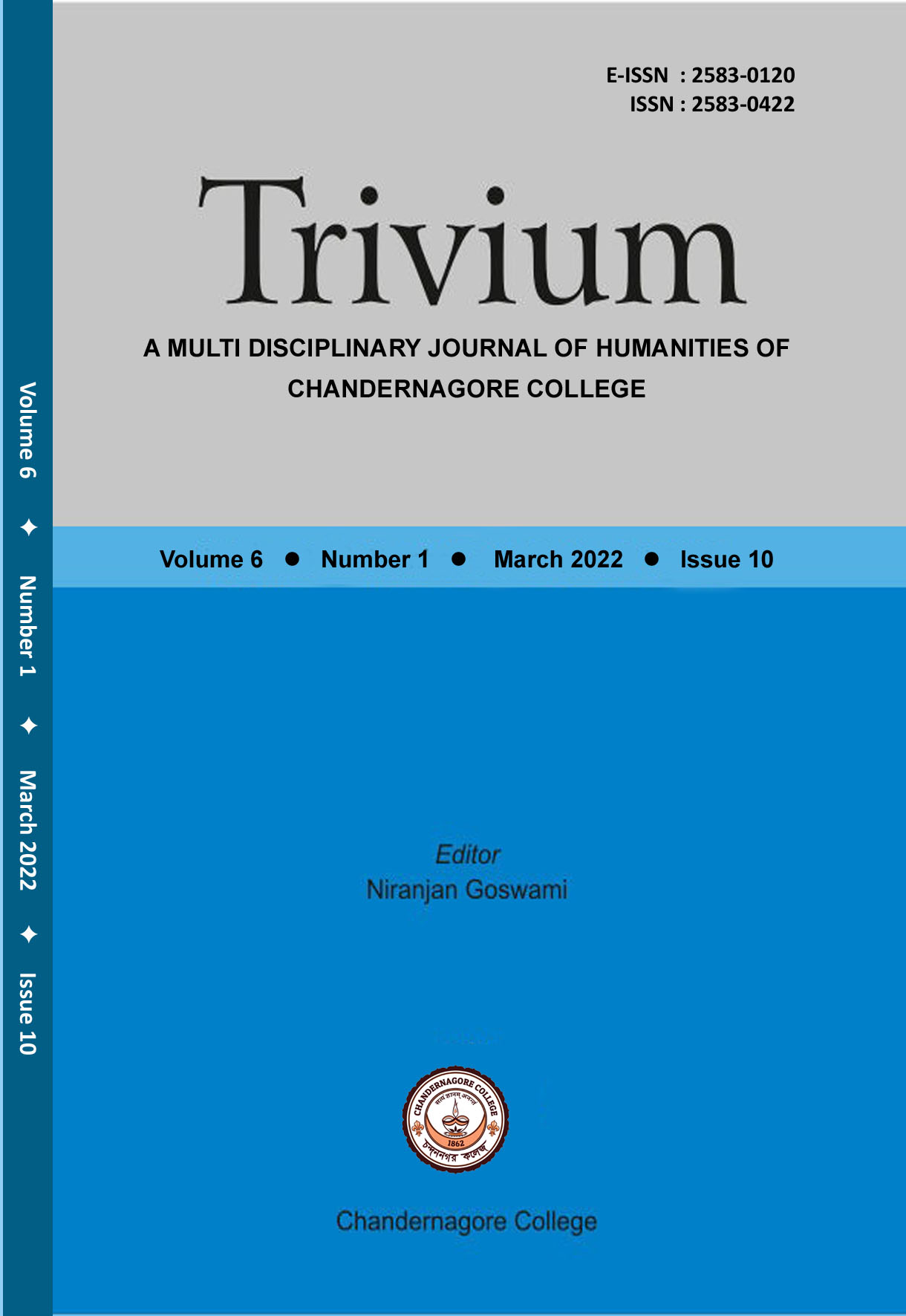Trivium : Vol - 6 : No - 1 : Issue - 10
The multidisciplinary nature of the present issue is apparent in the fact that beyond literature there are two essays on socio-political and one on sociological issues. The first essay by Nandini Bhattacharya is a masterly treatment of the themes of humanity and manhood in Shakespeare’s King Lear. Bhattacharya draws from a wide-ranging philosophical discourse to argue the continuing relevance of these themes. Henry Jacob tells the curious story of Thomas Hines who plotted for the Confederate cause but his autobiography established him as a rogue in popular imagination for his escape from prison instead of his role in the Northwestern Conspiracy that he failed to glorify. Madhurima Sen has taken an uncharted path by focusing on Aquila Ismail’s novel Of Martyrs and Marigolds, tracing the plight of the Urdu-speaking minority in Bangladesh, a people losing their voice and identity, trapped in the birth of a new nation and its consequent rhetoric. Devapriya Bhattacharya’s paper critically looks at the position of Dalit women through the lens of Intersectionality and comments on the double marginalisation of such women with particular reference to the Hathras rape case. Abhigyan Guha brings to the table the competing concepts of Multilateralism and Plurilateralism in International Relations and points out that the latter acts as an intermediate step to ensure more broad-based Multilateral framework of global trade and governance. Sudarshan Pujari analyses the role of the Punjabi Deras in Punjab politics by bringing in the concepts of ‘governmentality’ and ‘imagineering,’ and notes the expanse, plurality and comparability of such deras, looking at them as an ideal category for the study of state politics. Debasraba Chattopadhyay’s essay throws refreshing light on the relations between technology and society by taking up a gender study of the ‘domestication’ of computers by women users and how discrimination continues in the penetration of technology in lives of women. She argues in a nuanced manner that women share a relation with computers which is at the same time empowering as well as disempowering. Sutapa Mukhopadhyay’s Bengali essay provides a historical perspective to women’s writings in the nineteenth century by
pointing out how they created a narrative of their own by focusing on childcare, hygiene, health, marriage and domestic issues. She argues that a new concept of domesticity found expression in their literary imagination.
Readers can find front matter and back matters of the issue by clicking respective buttons:










